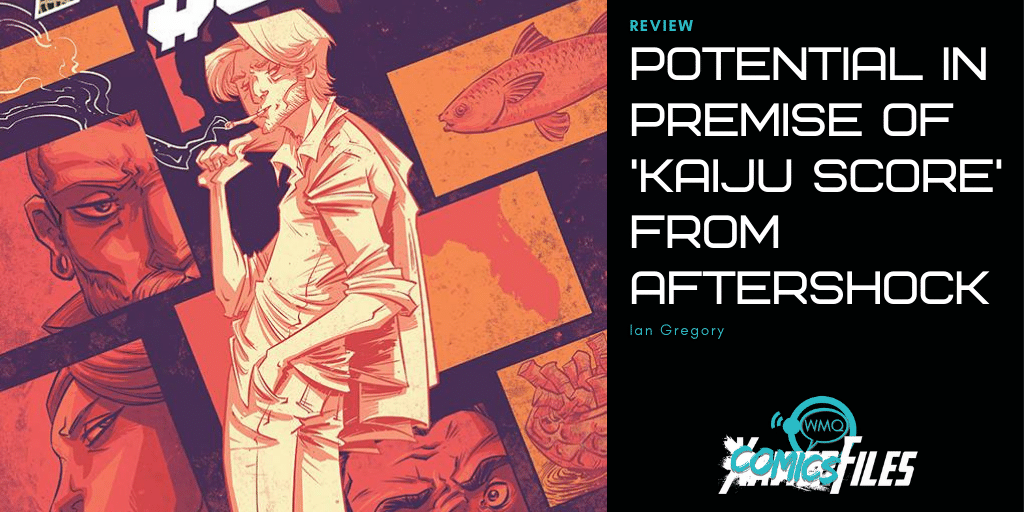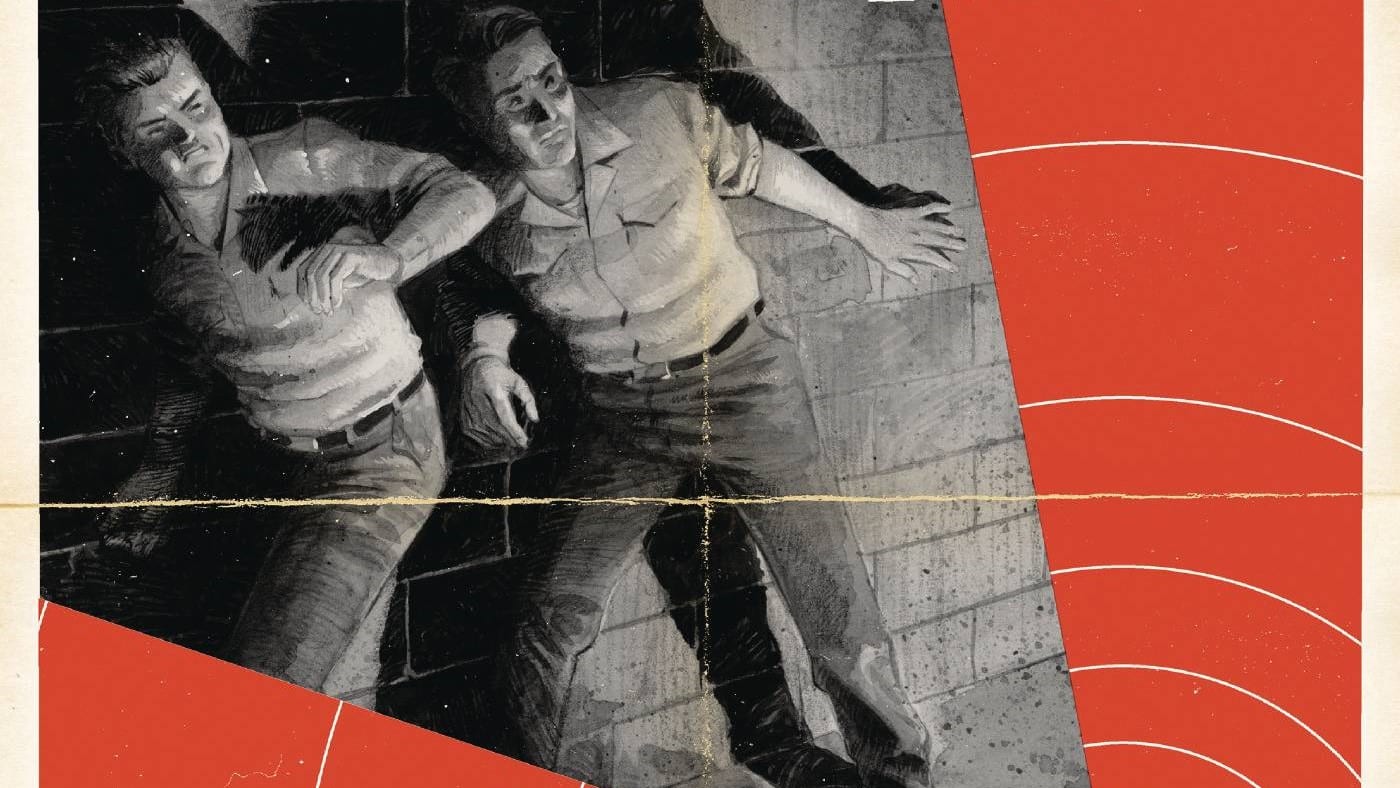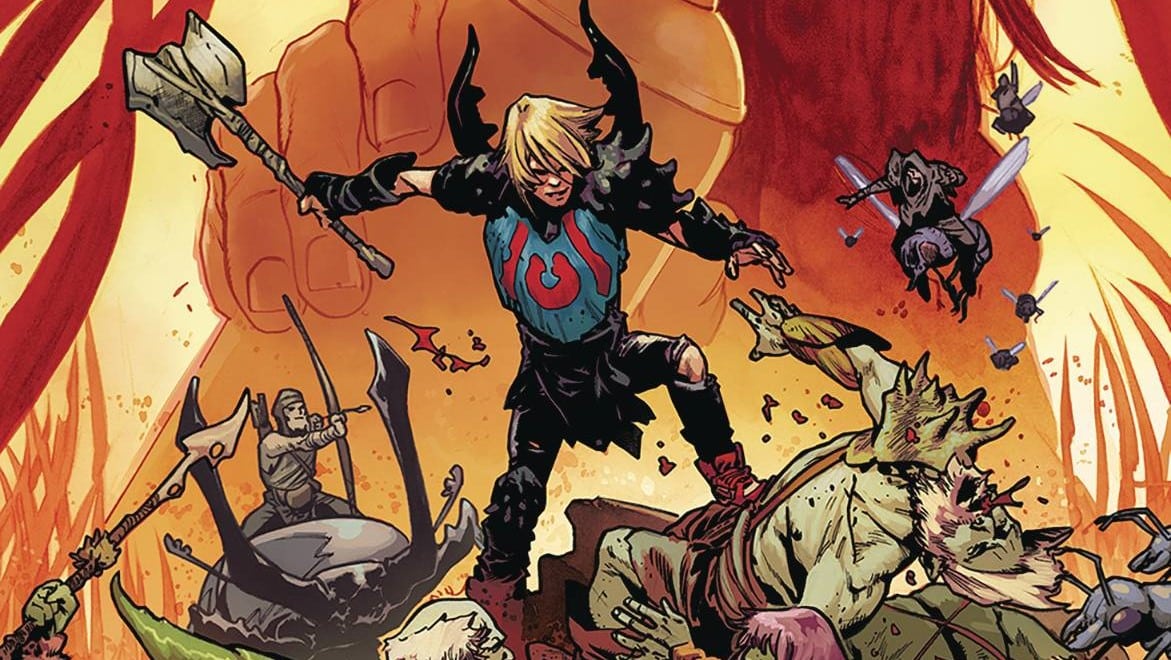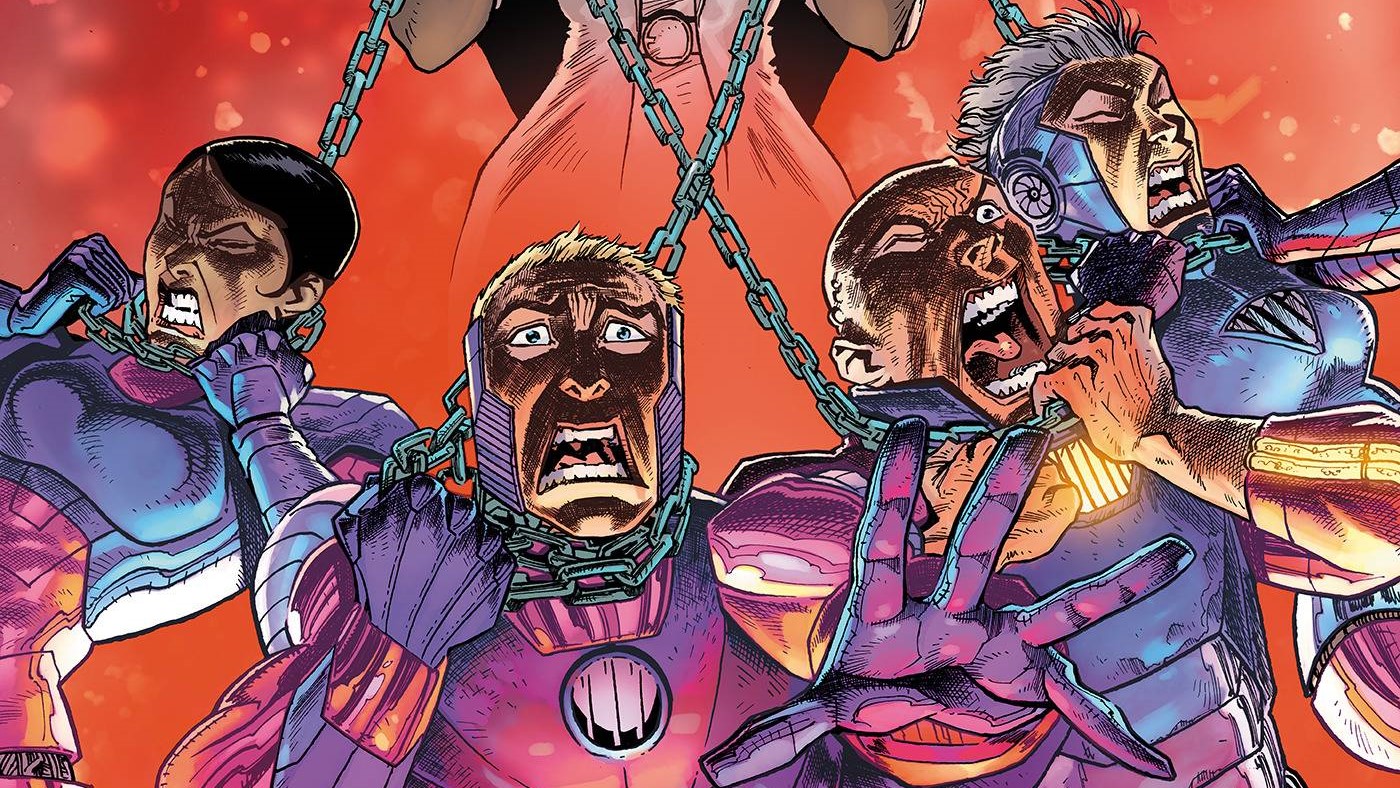Kaiju Score #1
Writer: James Patrick, Artist: Rem Broo, Letterer: Dave Sharpe, Publisher: AfterShock

Kaiju Score is true genre fiction, or maybe it’s better called genre genre fiction. The initial pitch reads like it could have come out of a random idea generator — HEIST MOVIE and KAIJU MOVIE — but James Patrick and Rem Broo do an excellent job of reconciling these two elements in their first issue. Kaiju Score’s #1 has a lot of work to do in introducing its world and its characters, and for the most part it succeeds, but a story like this needs careful, tight balancing that may be impossible to maintain.
First, the monster: Kaiju Score takes place more around the monsters than about them. The Earth in Kaiju Score is not only accustomed to kaiju events, but casually accepting of them, with national alert systems and evacuation protocols. They give off the vibe of a late Showa-era Godzilla film, in which all of the side characters casually say things like, “Oh, yeah, that’s Anguirus, Godzilla’s friend, moving on.” It helps that these kaiju are largely placid, unless provoked (which I’m sure won’t come up later in the series). Smartly, Patrick immediately reveals one such monster, and Broo effectively cashes in on the image of our protagonist taking a selfie next to a monster’s face.
Second, the heist: Kaiju Score hits all the classic beats of a heist movie. We get our plan, laid out in all its simplicity ahead of time, primed for disaster. We meet our crew, each with their own special problems or defects (an imposter safecracker, an unlucky equipment guy, a skeptical enforcer). Everyone knows the heist will go wrong, but Kaiju Score leans into it, and promises that not only will the heist go wrong, it will go wrong spectacularly, giant monsters and all.
The combination of genres lets Patrick elide some of the familiarity of each. Sure, you’ve seen a hundred heist movies with the same setup, but have you seen them occur beneath Godzilla’s feet? That novelty helps the reader overlook that none of the introduced characters have particularly deep backstories or motivations, but this first issue is so jam-packed with setup anyway that there’s hardly any time for meaningful characterization. Where Kaiju Score will succeed or fail is how it develops its crew and makes you care about whether these idiots survive their ill-fated job. Patrick has already demonstrated his mastery of the premise, so the devil will be in the details.
If you are unconvinced, however, about picking up this book, let me finish by talking about Broo’s incredible work. Broo effortlessly switches styles multiple times in this issue, from his spindly, sad-sack figures, to collage-style heist planning, to detailed long-shots of monsters. His characters are distinctive, his monsters look great and his expressions are compelling. This is all tied together by varied coloring that makes individual scenes pop and really brings to life the heist planning sequences.
All in all, Kaiju Score is a really good first issue and promises good things to come, but lacks major substance beyond its unique premise.
Ian Gregory is a writer and co-host of giant robots podcast Mech Ado About Nothing.






